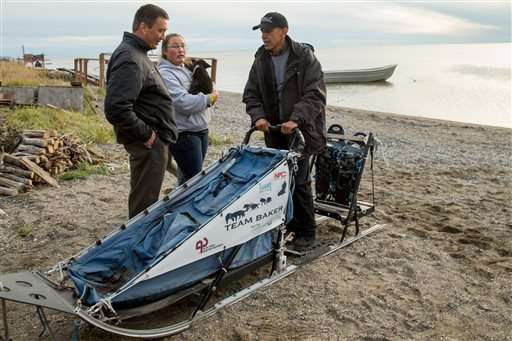Contours of landmark UN climate pact starting to take shape

U.N. climate talks are plodding ahead toward a worldwide deal to fight global warming, with negotiators agreeing to start work on a draft agreement.
A weeklong session in Bonn finished Friday with the two officials leading the talks getting the green light to turn a sprawling negotiating text into a coherent draft by the next round of talks in October. The deal is expected to be signed in Paris in December.
Crunch issues that remain include resolving how to share the burden of slashing climate-warming carbon emissions and helping poor countries adapt to rising sea levels and other effects of global warming.
The U.S., European Union and other developed nations want the new deal to reflect evolving national circumstances so countries take on more responsibilities as their economies and their carbon emissions grow. But India and others want to retain the firewall between developed and developing countries that's been at the core of previous agreements, requiring only developed nations to set binding targets to cut emissions.
"Some countries have a GDP per capita of more than $20,000, others have just $400," India's chief negotiator Ravi Prasad told The Associated Press. "There is a clear differentiation in the real world ... so how can we not have a difference in how we deal with climate change?"
China and India say the industrialized countries have a historical responsibility for climate change because they've released the most emissions over time, mainly from burning oil, coal and gas. However, developed country negotiators said the two sides are moving closer on the issue.
"We are not that far away," EU delegate Sarah Blau said.
In practice, the rich-poor division is already blurred. Except for the very poorest, all countries are supposed to submit pledges to cut emissions for the new deal. China submitted its pledge in June; India is expected to do so this month.
Also, several developing countries including South Korea, Mexico and Colombia have joined rich nations in pledging contributions to a climate fund to help the poorest countries deal with climate change.
Delegates in Bonn appeared to move closer on another controversial issue: how to help vulnerable nations deal with climate impacts they cannot adapt to, such as rising seas that threaten their coastlines and drinking water.
The U.S. and other Western countries are concerned the issue could lead to claims of liability and compensation for climate change losses. The U.S. presented a proposal in Bonn to continue discussions on the issue, even if it's not enshrined in the Paris deal.
"I'm sure throughout the negotiations we'll be able to find suitable language that caters to the interests of both us and the U.S.," said Amjad Abdulla of the Maldives, the chief negotiator for small island states.
Some delegates and environmental groups were disappointed with the slow pace in Bonn but U.N. climate chief Christiana Figueres urged patience.
"The proof is in the pudding," she said. "And the pudding is going to come out of the oven in Paris."
© 2015 The Associated Press. All rights reserved.





















